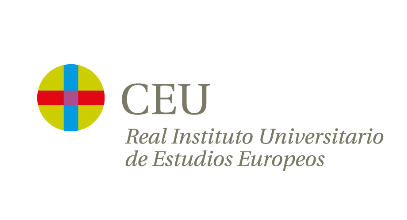– Allan F. Tatham –
The conditions for membership of the European Union as well as the procedures for accession have developed over decades.[1] With the exponential growth in membership, EU enlargement has evolved into an ever more complex, sophisticated and nuanced process. Today, it represents the extension and projection of EU law and values, forms of policy-making and institutional co-operation into the systems of future Member States that necessarily entails profound change in how they operate, both internally and externally.
While the conditions for membership have evolved over the last half a century or so, the core EU values of democracy, the rule of law and protection of human rights, have remained constant features of accession. Although their respect was implicit in the first wave of enlargement, these values were expressly affirmed in the late 1970s by the then nine Members of the European Economic Community as essential elements of membership.[2] As fundamental components of the values listed in Article 2 TEU,[3] future applicants for Union membership must respect and be committed to promoting such values as required by the accession clause, Article 49 TEU.
Although the current focus for many commentators on the respect for EU values lies within the Union and its Member States, nevertheless sight must not be lost of the fact that the observation of these values – legally, institutionally, socially – remains an intrinsic part of the accession conditionality that candidates must fulfil. In fact, faced with the present challenges, the European Commission has been developing plans that aim to anchor such values more securely in the systems of candidate countries before they eventually join the Union. The Commission thus seeks to be able to deliver a viable opportunity of membership for the Western Balkans[4] as well as Turkey and the active participants in the Eastern Partnership,[5] but without compromising on the actual guarantee and protection of EU basic values.
However, turning values into reality, operationalizing them so to speak, is no easy task. It involves not just the creation of rules and institutions on a bucket list whose items need to be ticked off when complete but rather the transformation or Europeanization of systems, attitudes, approaches and ways of behaviour and conduct.[6] The impact cuts across the whole gamut of governance and social networks in a society.
To this end, the European Commission published a Communication[7] in February last year that revises the enlargement methodology for the Western Balkan nations but is also relevant for other (potential) candidate countries. In order to ensure a real EU membership perspective for the Western Balkans, the Commission proposes to drive the accession process forward by rendering it more credible, dynamic and predictable. It also seeks to ensure a stronger political steering from the EU Member States themselves, thereby enhancing their role in the whole accession process, one that the Commission has previously dominated in its day-to-day interactions and negotiations.
The Commission has observed that the Union needs to reinforce the credibility of enlargement through an even greater focus on fundamental reforms, commencing with, inter alia, the rule of law and the proper functioning of democratic institutions. Moreover, in order to add further dynamism into the negotiating process, the Commission proposes that the various negotiating chapters (the different areas of law and policy on which the parties negotiate) should be grouped into six thematic clusters, including one on “fundamentals”. This theme would cover the rule of law, democracy, judiciary, freedom, security, justice, and home affairs. In order to emphasise the importance of the observance and implementation of such EU values by the candidates, this theme would remain “open” throughout the negotiations and would be the last one to be closed on their conclusion. This is intended to ensure that no “backsliding” occurs – e.g., in respecting EU values or reform implementation –as a candidate negotiates and prepares itself for eventual accession.
In this respect, the Union intends to adopt a more predictable approach to domestic reforms under the “more for more” principle: the more reforms made and the more secure they are, the more the EU will fund and invest in the candidate. Additional incentives could include accelerated integration in some areas before accession (a sort of multispeed enlargement applicable to each candidate country) as well as the possible phasing in to particular policies or programmes of the Union as well as the internal market. These rewards are contingent and the Union would meet any backsliding with proportionate sanctioning. This would include suspending negotiations in certain areas or even completely; re-opening chapters ostensibly already closed; the pausing or withdrawal of access already given to EU programmes; and the reduction in EU funding.
On one level, the Communication provides the opportunity for a more “bottom up” approach in certain aspects for practical protection of EU values. Inter-agency co-operation[8] between the judiciaries and police in the EU Member States and Western Balkans has the potential to allow for the exchange between practitioners “on the ground” of best practices and procedures, technical assistance, training in operational matters, human rights and the rule of law generally. This could lay the foundations for common commitments to ethics, a culture of compliance and the rule of law. Tangible results in a reduction of corruption (official or otherwise) and criminality would have a positive impact on Western Balkans citizens’ perceptions as regards the benefits of EU membership.
At another level, the Communication says little in how the Union will further engage with civil society and individual citizens in the candidate countries. It is within this crucial sphere that the struggle for EU values will be won or lost. Thus the Commission will need to evolve its funding strategy for micro-projects aimed at civil society and non-governmental organisations in tandem with its financing of training for the police and judiciaries. Moreover, in seeking to render civil society more resilient in the face of challenges to the rule of law and democracy, the Commission would need to find support for independent media (whether print, audio-visual or digital) as well as academia in order to ensure protection of the necessary civil space for debate. The Union is also mindful of the potential negative consequences for leaving the protection of its values in the hands of the political and administrative establishment alone. It thus aims to invest resources, at all social levels, in individuals and non-governmental organisations thereby allowing them to take an active role within society in the protection of the EU values of democracy, the rule of law and human rights protection. Having already gained that experience in the lead up to accession, people in the candidate countries will therefore be all the stronger when facing future challenges to EU value observance when living in their Member States as citizens of the Union.
Notas a pie de página
[1] A.F. Tatham, Enlargement of the European Union, Kluwer law International, Alphen aan den Rijn (2009), p. 475.
[2] European Council, “Declaration on democracy”, Copenhagen, 7-8 April 1978, Bulletin of the European Communities 3-1978, p. 6.
[3] As well as its predecessor, Article 6(1) in the 1992 (Maastricht) Treaty on the European Union.
[4] These states are: Albania, Bosnia and Herzegovina, Kosovo, Montenegro, North Macedonia and Serbia.
[5] Within the Eastern Partnership, the most active countries are Georgia, Moldova and Ukraine.
[6] F. Schimmelfennig and U. Sedelmeier (eds.), The Europeanization of Central and Eastern Europe, Cornell University Press, Ithaca (NY) and London (2005).
[7] European Commission, “Enhancing the accession process – A credible EU perspective for the Western Balkans”, Communication, Brussels, 5 February 2020, COM(2020) 57 final.
[8] P. Bargiacchi, “The Revised Enlargement Methodology for the Western Balkans”, Regional Law Review, vol. 1 (2020), pp. 47-58, pp. 55-57.
Allan F. Tatham, profesor de Derecho Internacional y Relaciones Internacionales en la Universidad San Pablo CEU.




